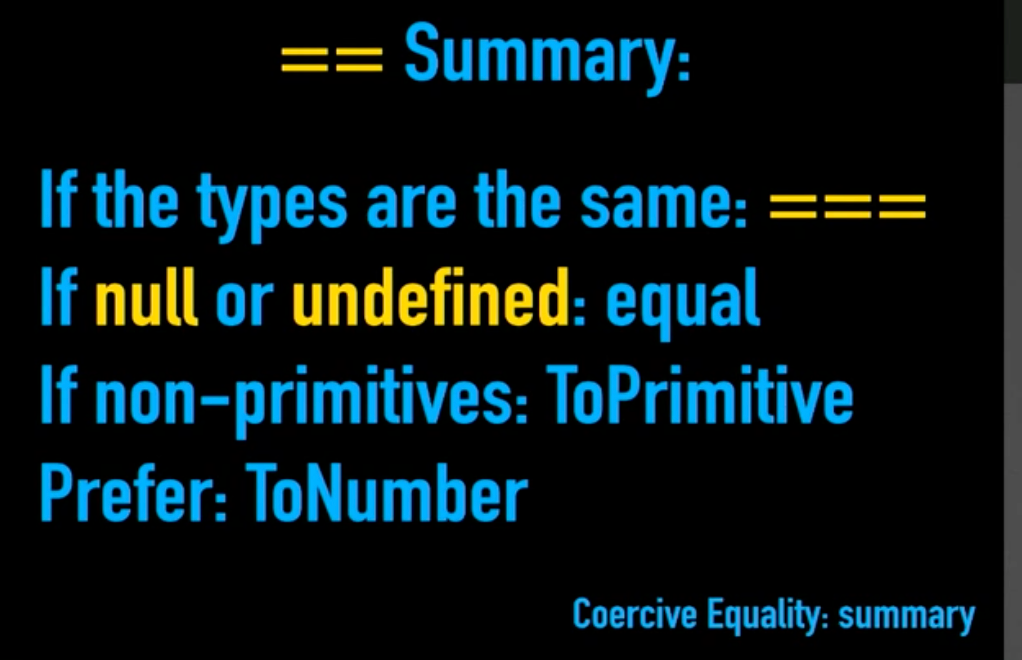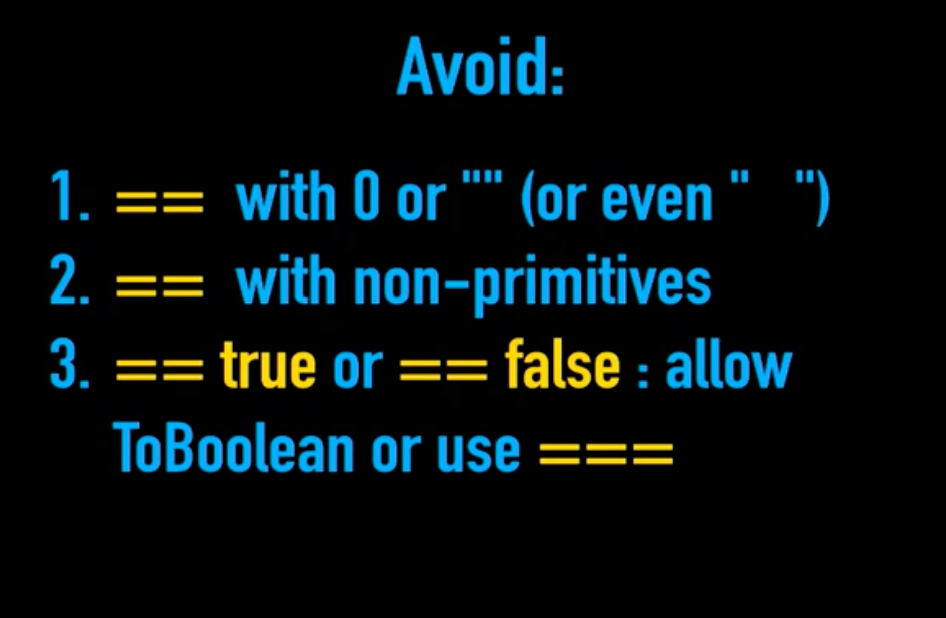frontendmaster¶
I started to enroll kyle's lesson. When I did GFE problem, I sometimes been confused about why, I hope I could think more and learn deeper in this. Even I know I can't do it in one time.
Equality¶


==¶
- allow coercion
- toNumber()
- compare as number
- can't coercion(object with other types)
- toPrimitive()
Corner case¶
- [] == ![] //true
===¶
- check type first
- if NaN, -0, they are not equal
- obj comparison
- need to point to the same object/array
Static type¶
Know your type will improve your code quality. not just depend on typescript.
scope¶
- target (assign value / declare) - runtime
- source (get value) - compile time
named function Pros¶
- Reliable function self-reference (recursion, etc)
- More debuggable stack traces
- More self-documenting code
- arrow function is anonymous function
advanced scope¶
- dynamic scope
- depends on where the function is called
- lexical scope
- depends on where the function is declared
block scope¶
- to solve name collision
- encapsulation
- use let, const (caused var will hoisting) to block scope
- use in condition or loop
- var can be reused in the same scope, but let, const can't
- store temporary value into block scope
const¶
- can't be reassigned
- can't be redeclared
- must be assigned when declare
- use with immutable primitive values(less confusion)
hoisting¶
- function execution first, then definition